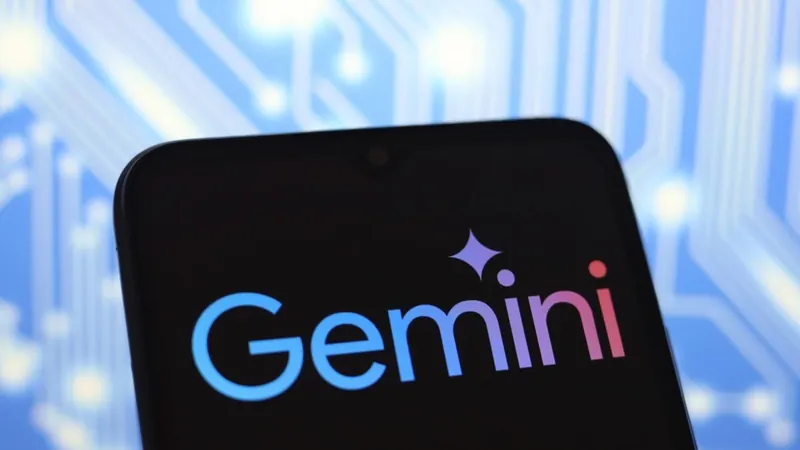
Google's Gemini AI Will Access Your Texts—Like It or Not!
2025-06-25
Author: Ying
Gemini's Bold Move: Privacy Concerns Arise
Imagine a world where your personal assistant—powered by artificial intelligence—manages your daily tasks, from ordering food to summarizing your schedule. Sounds convenient, right? But what happens when that assistant needs access to your most private information?
Google just raised eyebrows with its announcement that the Gemini AI will soon have access to key applications on your Android device, including Phone, Messages, and WhatsApp, regardless of whether users opt in or out. This controversial change is set to take effect on July 7 and has left many feeling uneasy about privacy implications.
What Does This Mean for Your Privacy?
In a recent email to Android users, Google implied that Gemini's integration would occur without full user consent. While they stated that users could disable these features through the Apps settings, the lack of clarity about how to navigate these settings raises further concerns.
When users allow App Activity, Google retains usage data for up to 72 hours, and in some cases, that data could be reviewed by humans. This blurs the line between convenience and privacy invasion, particularly for those who are anxious about surveillance in the digital age.
A Deeper Conversation About Data and AI
The reality is that to fulfill its potential, Gemini requires access to intimate details of our lives. This predicament invites a crucial discussion about our comfort levels with data being collected, especially as AI capabilities expand.
We're essentially revisiting the debates surrounding voice assistants, but the stakes feel even higher this time. If we're not vigilant, our private conversations and messages could be at risk of being harvested without our explicit consent or understanding.
The Takeaway: Prioritizing Privacy
As thrilling as the promise of AI tasks may sound, many users are left wondering if the price of convenience is too high. For many, safeguarding personal messages and data takes precedence over the allure of automated assistance. Will you trust Google with your texts?

 Brasil (PT)
Brasil (PT)
 Canada (EN)
Canada (EN)
 Chile (ES)
Chile (ES)
 Česko (CS)
Česko (CS)
 대한민국 (KO)
대한민국 (KO)
 España (ES)
España (ES)
 France (FR)
France (FR)
 Hong Kong (EN)
Hong Kong (EN)
 Italia (IT)
Italia (IT)
 日本 (JA)
日本 (JA)
 Magyarország (HU)
Magyarország (HU)
 Norge (NO)
Norge (NO)
 Polska (PL)
Polska (PL)
 Schweiz (DE)
Schweiz (DE)
 Singapore (EN)
Singapore (EN)
 Sverige (SV)
Sverige (SV)
 Suomi (FI)
Suomi (FI)
 Türkiye (TR)
Türkiye (TR)
 الإمارات العربية المتحدة (AR)
الإمارات العربية المتحدة (AR)